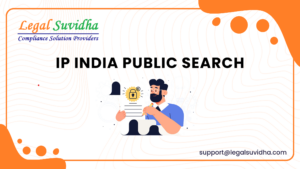Insurance policies are essential in providing protection and financial security in times of uncertainty. However, there are instances where these policies can become void, and individuals may need to seek a refund of their premium payments. In this comprehensive guide, we will explore the reasons why insurance policies can become void and the steps that individuals can take to obtain a refund of their premiums.
Reasons for Void Insurance Policies:
There are several reasons why an insurance policy can become void, some of which include:
- Misrepresentation of Information: If an individual provides false or misleading information when applying for insurance, the policy can become void.
- Non-disclosure of Information: Failure to disclose relevant information when applying for insurance can also render the policy void.
- Breach of Policy Terms: If an individual violates the terms and conditions of the policy, such as failing to pay premiums, the policy can become void.
- Fraud: If an individual engages in fraudulent activity related to the policy, such as submitting a false claim, the policy can become void.
Refund of Premium Payments:
If an insurance policy becomes void, individuals may be entitled to a refund of their premium payments. The process for obtaining a refund varies depending on the type of policy and the insurance provider. However, some general steps that individuals can take include:
- Contacting the Insurance Provider: Individuals should contact their insurance provider to inform them that their policy has become void and request a refund of their premiums.
- Providing Evidence: Depending on the reason for the void policy, individuals may need to provide evidence to support their claim. For example, if the policy became void due to misrepresentation of information, individuals may need to provide proof that they provided accurate information when applying for the policy.
- Following up: If the insurance provider does not respond or denies the refund request, individuals should follow up with them and seek legal advice if necessary.
Non-disclosure and Misrepresentation: Understanding Their Impact on Insurance Policies –
- Providing accurate and complete information when applying for insurance is crucial to prevent policies from becoming void.
- Non-disclosure refers to failing to disclose important information that may affect the insurer’s decision to offer coverage or the terms of the policy.
- Misrepresentation refers to providing false or misleading information when applying for insurance.
- Non-disclosure and misrepresentation can result in a policy becoming void, which means that the insurer may refuse to pay out any claims made under the policy.
- Insurance providers may argue that the policy was obtained under false pretenses and that they would not have offered coverage or offered it under different terms if they had known the truth.
- A policyholder may not be entitled to a refund of premiums paid if a policy is found to be void due to non-disclosure or misrepresentation, resulting in significant financial losses.
- Criteria for voiding policies can vary between insurance providers and types of policies.
- It is essential to read the policy terms and conditions carefully and ask questions if anything is unclear.
- In case of doubt, it is better to disclose more information than less to ensure that the policy remains valid and claims can be paid out if needed.
Fraud and Insurance Policies: How insurance fraud works & what it can mean for policyholders –
- Insurance fraud can result in higher premiums for all policyholders and may lead to insurance providers refusing coverage in certain areas or for certain types of policies.
- Insurance fraud can take many forms, including deliberately staging accidents or thefts, exaggerating the extent of damage or injury, providing false information when applying for insurance, or failing to disclose important information that may affect the insurer’s decision to offer coverage or the terms of the policy.
- Fraudulent claims can result in significant financial losses for insurance providers, which they may try to recoup through higher premiums or by refusing coverage.
- Policyholders who are found to have been involved in insurance fraud may face criminal charges, fines, imprisonment, loss of insurance coverage, and financial losses.
- Insurance providers who engage in fraudulent practices can face serious consequences, including fines, lawsuits, and loss of business.
- To protect against insurance fraud, it is important to be honest when applying for insurance and when making claims, provide accurate and complete information, provide proof of losses or damages, read policy terms and conditions carefully, and ask questions if anything is unclear.
- It is better to disclose more information than less to ensure that the policy remains valid and claims can be paid out if needed.
Legal Options: What to do if an insurance provider denies a refund request, and how legal options may vary based on the policy and provider –
If an insurance provider denies a refund request, policyholders may have legal options available to them. However, the specific legal options may vary based on the policy and provider. Here are some general points to keep in mind:
- Review the policy terms and conditions: The first step is to carefully review the policy terms and conditions. This will provide information on what circumstances may lead to a refund and any requirements for requesting a refund.
- Contact the insurer: If the policyholder believes that a refund has been wrongly denied, they should contact the insurer to discuss the issue. It may be possible to resolve the issue through negotiation or mediation.
- File a complaint: If the insurer is unresponsive or unwilling to provide a refund, the policyholder may file a complaint with the state insurance department. The department can investigate the issue and may be able to help resolve the dispute.
- Consider legal action: If all other options have been exhausted, the policyholder may consider taking legal action. The specific legal options available will depend on the policy and provider. It may be necessary to hire an attorney to help navigate the legal process.
- Keep accurate records: Throughout the process, it is important to keep accurate records of all communication and documentation related to the refund request. This will help support the case if legal action is necessary.
It is important to note that the legal options available may vary based on the type of policy and the provider. For example, some policies may have arbitration clauses that require disputes to be resolved through arbitration rather than the court system. Additionally, the legal requirements for filing a complaint with the state insurance department may vary depending on the state.
Conclusion:
In conclusion, insurance policies can become void for several reasons, including misrepresentation of information, non-disclosure, breach of policy terms, and fraud. Individuals who find themselves in this situation can take steps to obtain a refund of their premiums. By following the general steps outlined in this guide, individuals can increase their chances of obtaining a refund and protect themselves from financial losses.
If You have any query then connect with us at [email protected] or you can contact us & stay updated with our latest blogs & articles.





















